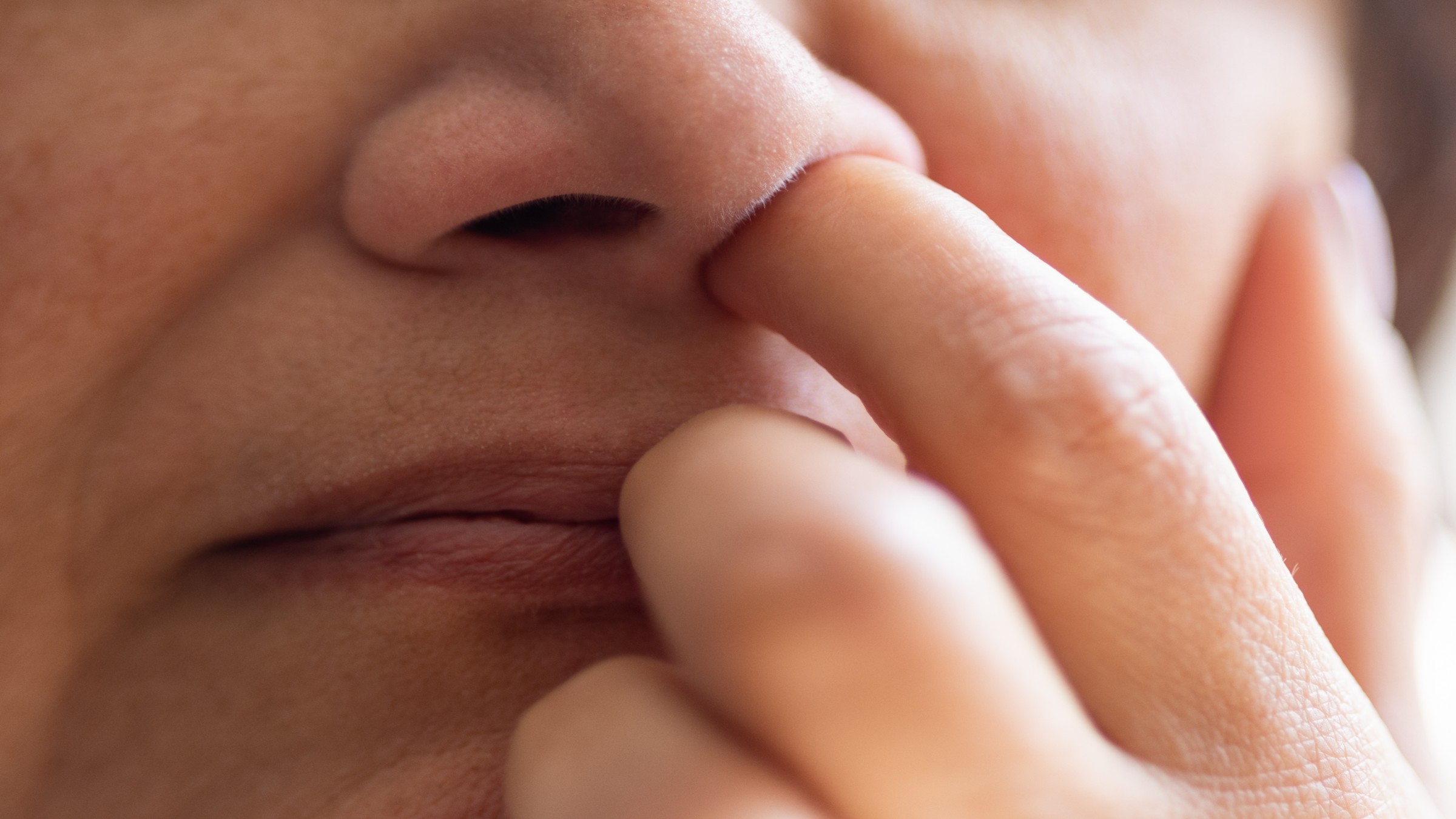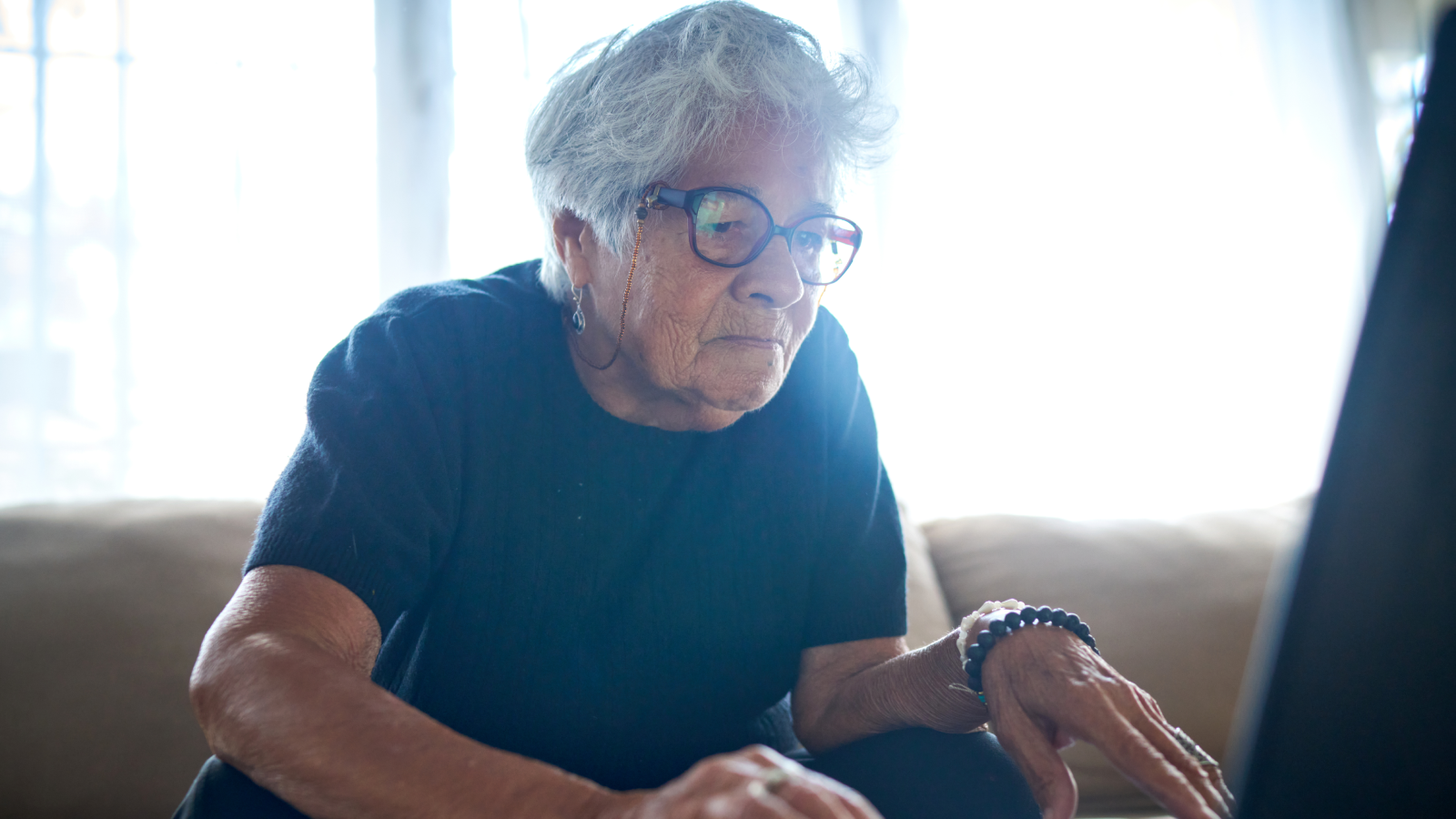Can picking your nose raise the risk of catching COVID-19? The answer may (not) shock you
Public health measures were ramped up during the pandemic, but a new study in health care workers suggests one disease-spreading habit may have been overlooked.
Get the world’s most fascinating discoveries delivered straight to your inbox.
You are now subscribed
Your newsletter sign-up was successful
Want to add more newsletters?

Delivered Daily
Daily Newsletter
Sign up for the latest discoveries, groundbreaking research and fascinating breakthroughs that impact you and the wider world direct to your inbox.

Once a week
Life's Little Mysteries
Feed your curiosity with an exclusive mystery every week, solved with science and delivered direct to your inbox before it's seen anywhere else.

Once a week
How It Works
Sign up to our free science & technology newsletter for your weekly fix of fascinating articles, quick quizzes, amazing images, and more

Delivered daily
Space.com Newsletter
Breaking space news, the latest updates on rocket launches, skywatching events and more!

Once a month
Watch This Space
Sign up to our monthly entertainment newsletter to keep up with all our coverage of the latest sci-fi and space movies, tv shows, games and books.

Once a week
Night Sky This Week
Discover this week's must-see night sky events, moon phases, and stunning astrophotos. Sign up for our skywatching newsletter and explore the universe with us!
Join the club
Get full access to premium articles, exclusive features and a growing list of member rewards.

Face mask — check. Goggles — check. Gloves — check. Protective measures like these were all too familiar to health care workers caring for patients during the COVID-19 pandemic.
But despite all these efforts to reduce the virus' spread, medical providers were still tempted to engage in a likely risky but all-too-common habit: Nose picking.
In a study of hundreds of hospital health care workers in the Netherlands, scientists found for the first time that nose picking was associated with an increased risk of catching SARS-CoV-2, the virus that causes COVID-19, in the pandemic's early days.
The findings, published Wednesday (Aug. 2) in the journal PLOS One, may seem somewhat obvious, particularly after health officials urged the public to wash their hands frequently and avoid touching their eyes, mouth or nose to reduce their risk of COVID-19. But the results highlight the importance of these simple behavioral changes that may sometimes be overlooked.
Related: Genetic quirk could explain why not everyone shows symptoms of COVID-19
"It is important to create awareness in prevention guidelines," lead author Dr. Ayesha Lavell, a physician at the Department of Internal Medicine at Amsterdam University Medical Centers (UMC), told Live Science. When you have "advice to shave your beard" to reduce the risk of catching COVID-19, she said, it should be "advice not to pick your nose, for example."
As COVID-19 hit, health care facilities received guidance on the use of personal protective equipment (PPE) and good hygiene practices, such as using respirators and face masks, wearing gowns and ensuring hands were washed. Despite these precautions, however, hospital health care workers in COVID-19 wards were more likely to be infected with SARS-CoV-2 than those not caring for COVID-19 patients or not working in patient care.
Get the world’s most fascinating discoveries delivered straight to your inbox.
Some of this risk may come down to imperfect hand washing or PPE use, but the role of habitual behaviors — like nose picking — has been overlooked, the authors wrote.
In the new study, scientists analyzed rates of SARS-CoV-2 infection among hospital staff working in Amsterdam UMC between March and October 2020. They then asked participants to complete an online survey in 2021, probing whether and how often they picked their nose. The survey also asked whether participants bit their nails, had a beard or wore glasses.
Out of about 220 people who completed the survey, nearly 85% said they picked their nose either daily, weekly or monthly, and these individuals were more likely to be younger and male than those who reported not picking their nose. Importantly, nose picking respondents had a 17.3% chance of being infected with SARS-CoV-2, compared with 5.9% for those who didn't. No association was found between the other behavioral and physical variables studied and catching COVID-19.
"Hypothetically, if you have the virus on your finger and you introduce it inside your nose, in combination with damaging the mucosa [the tissue that lines the nose], you might facilitate easier entrance [of the virus into the body]," Lavell noted. "But we only looked at associations, so we can't say for sure that if you put your dirty finger in your nose that you'll get COVID-19."
The authors highlighted several limitations of the study — namely, that there was a time lag between the team measuring infections and the participants completing the survey. As such, some participants may have changed their behavior or had skewed memories of their past actions. And relying on self-reporting can also run the risk of people telling fibs, meaning more people may be nose-pickers than admitted to it.
Other grisly details, such as where exactly people picked their noses, how far up people put their fingers and whether they ate their boogers, were also not evaluated. In addition, not being able to examine the influence of newer coronavirus variants like omicron or the effects of widespread vaccination may limit the study's applicability to current practice.
Nevertheless, Lavell believes the study may raise awareness. "As health care workers we are extra aware of being hygienic, but these findings just show that we are also human," she noted. Given that nose picking is not unique to medical providers, the results may also apply to the overall population, as well as to the spread of other diseases.
"It is possible that the results may be applicable to other viruses that are transmitted in the same way or are comparable to SARS-CoV-2," she added. This is "just one study," though, so more are needed to confirm these results, she concluded.

Emily is a health news writer based in London, United Kingdom. She holds a bachelor's degree in biology from Durham University and a master's degree in clinical and therapeutic neuroscience from Oxford University. She has worked in science communication, medical writing and as a local news reporter while undertaking NCTJ journalism training with News Associates. In 2018, she was named one of MHP Communications' 30 journalists to watch under 30.
 Live Science Plus
Live Science Plus










